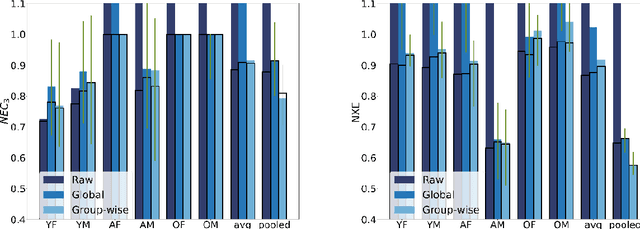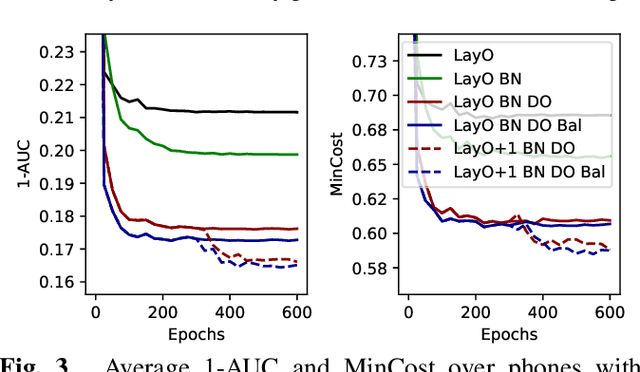Cyntia Bonomi
Beyond Global Metrics: A Fairness Analysis for Interpretable Voice Disorder Detection Systems
Apr 11, 2025



Abstract:We conducted a comprehensive analysis of an Automatic Voice Disorders Detection (AVDD) system using existing voice disorder datasets with available demographic metadata. The study involved analysing system performance across various demographic groups, particularly focusing on gender and age-based cohorts. Performance evaluation was based on multiple metrics, including normalised costs and cross-entropy. We employed calibration techniques trained separately on predefined demographic groups to address group-dependent miscalibration. Analysis revealed significant performance disparities across groups despite strong global metrics. The system showed systematic biases, misclassifying healthy speakers over 55 as having a voice disorder and speakers with disorders aged 14-30 as healthy. Group-specific calibration improved posterior probability quality, reducing overconfidence. For young disordered speakers, low severity scores were identified as contributing to poor system performance. For older speakers, age-related voice characteristics and potential limitations in the pretrained Hubert model used as feature extractor likely affected results. The study demonstrates that global performance metrics are insufficient for evaluating AVDD system performance. Group-specific analysis may unmask problems in system performance which are hidden within global metrics. Further, group-dependent calibration strategies help mitigate biases, resulting in a more reliable indication of system confidence. These findings emphasize the need for demographic-specific evaluation and calibration in voice disorder detection systems, while providing a methodological framework applicable to broader biomedical classification tasks where demographic metadata is available.
A transfer learning based approach for pronunciation scoring
Nov 01, 2021


Abstract:Phone-level pronunciation scoring is a challenging task, with performance far from that of human annotators. Standard systems generate a score for each phone in a phrase using models trained for automatic speech recognition (ASR) with native data only. Better performance has been shown when using systems that are trained specifically for the task using non-native data. Yet, such systems face the challenge that datasets labelled for this task are scarce and usually small. In this paper, we present a transfer learning-based approach that leverages a model trained for ASR, adapting it for the task of pronunciation scoring. We analyze the effect of several design choices and compare the performance with a state-of-the-art goodness of pronunciation (GOP) system. Our final system is 20% better than the GOP system on EpaDB, a database for pronunciation scoring research, for a cost function that prioritizes low rates of unnecessary corrections.
 Add to Chrome
Add to Chrome Add to Firefox
Add to Firefox Add to Edge
Add to Edge